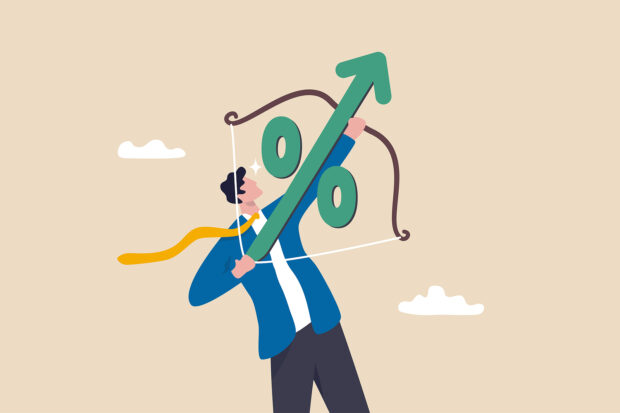Allstate Corp. said it is accelerating its plan to increase auto insurance rates as it reported unprofitable results for the second quarter.
Allstate booked a net loss of $1.04 billion in the second quarter compared with a net income profit of about $1.6 billion during the same period a year ago. The Northbrook, Ill.-based insurer recorded an unprofitable combined ratio of nearly 108 during Q2.
CEO Tom Wilson said that “rising claim repair costs and upward prior year loss reserve development” led to the combined ratio result.
“We are further accelerating insurance price increases, implementing underwriting restrictions in underperforming states and reducing advertising spend, which is expected to improve profitability and slow policy growth,” he said in a statement.
Wilson, during a call with analysts on Aug. 4, added that “broadly raising auto and home insurance rates” is part of a strategy to improve profitability.
“In the second half of 2022, we plan to file for rate increases in excess of the increases implemented in the first half of this year, which were 6.1 percent of Allstate brand countrywide premiums,” he said. “Underwriting guidelines have been and will be changed to reduce new business volume, where we’re not earning adequate returns.”
Earlier this year, Allstate said it “increased the magnitude” of auto rate hikes as it reported positive net income for the first quarter thanks to profitability in homeowners insurance. However, for the second quarter, Allstate’s homeowners line of business generated an underwriting loss of $186 million on higher catastrophe and non-cat losses plus unfavorable prior year reserve re-estimates, the company said. The Q2 combined ratio for homeowners was 106.9.
Meanwhile, higher claim frequency and severity in auto led to a combined ratio of 107.9. Claims severity was driven by higher costs for used cars, parts and labor as well as higher injury claims from medical inflation, more medical treatment and attorney involvement.
Allstate strengthened property liability reserves in Q2 by $411 million, of which $275 million was related to personal auto and $91 million was attributable to commercial auto—mostly from shared-economy business that Allstate has exited.
Wilson said Allstate has implemented “broad rate increases” countrywide, with nine states seeing auto rate increases over 10 percent. However, the insurer has not been able to get adequate rate in New York, which accounts for 9 percent of Allstate’s auto premium, or any increase in California, Wilson added.
While inflationary factors affect the homeowners line and the need for rate, Allstate said it has done well over the long term. Glen Shapiro, president of property liability, said Allstate knows “how to underwrite this business to make money over time and protect a good balance set of customers in such a way that the portfolio works.”
“We are not in an equal position in homeowners as auto right now in spite of the inflation,” he added. “We’re in a very good position to continue to write and grow homeowners.”





















 Viewpoint: Runoff Specialists Have Evolved Into Key Strategic Partners for Insurers
Viewpoint: Runoff Specialists Have Evolved Into Key Strategic Partners for Insurers  10 Do’s and Don’ts of a Smart ORSA Report
10 Do’s and Don’ts of a Smart ORSA Report  State Farm Inked $1.5B Underwriting Profit for 2025; HO Loss Persists
State Farm Inked $1.5B Underwriting Profit for 2025; HO Loss Persists  AI Claim Assistant Now Taking Auto Damage Claims Calls at Travelers
AI Claim Assistant Now Taking Auto Damage Claims Calls at Travelers 